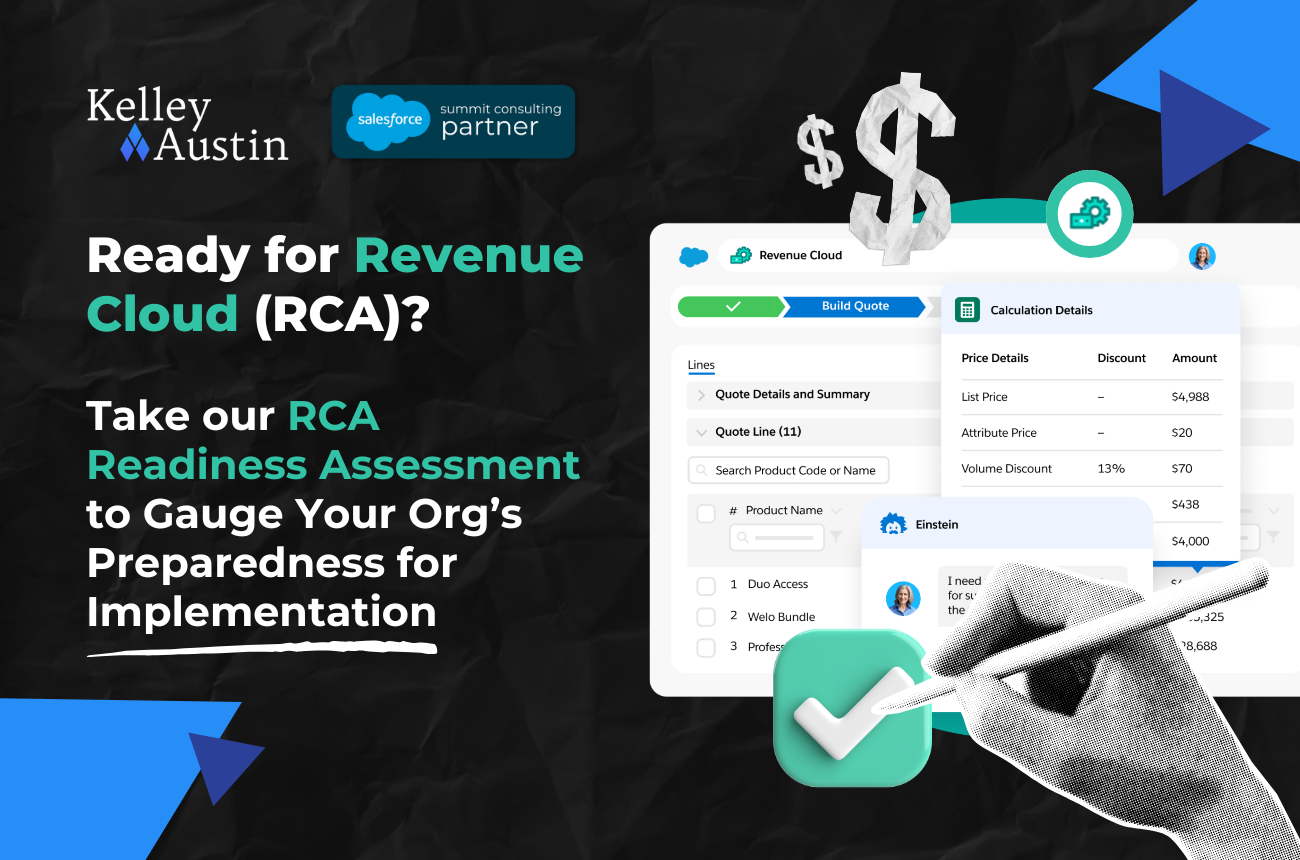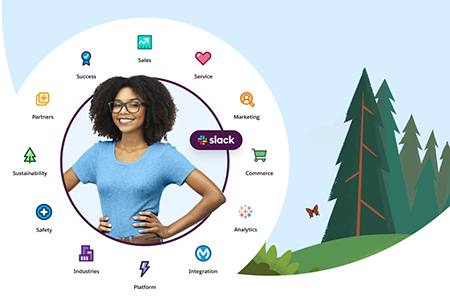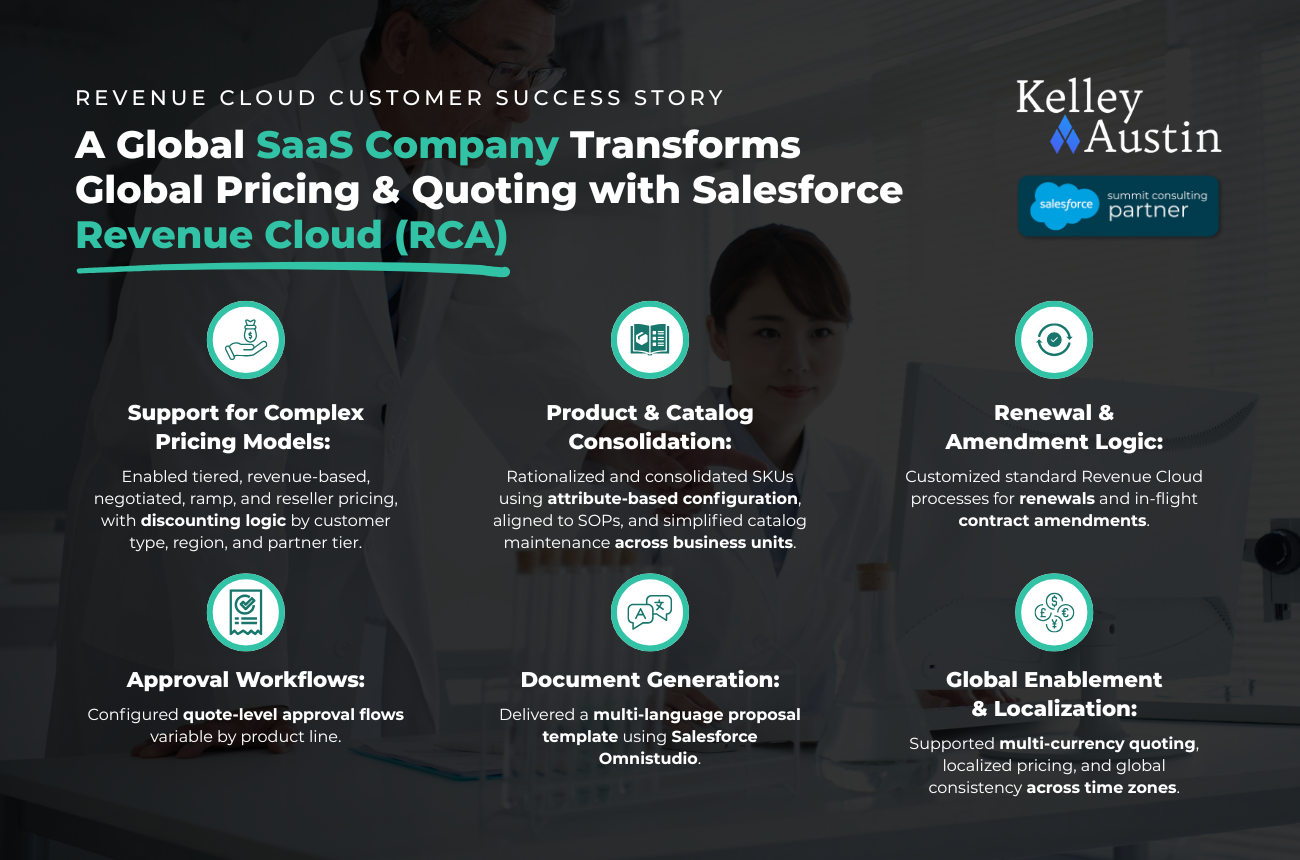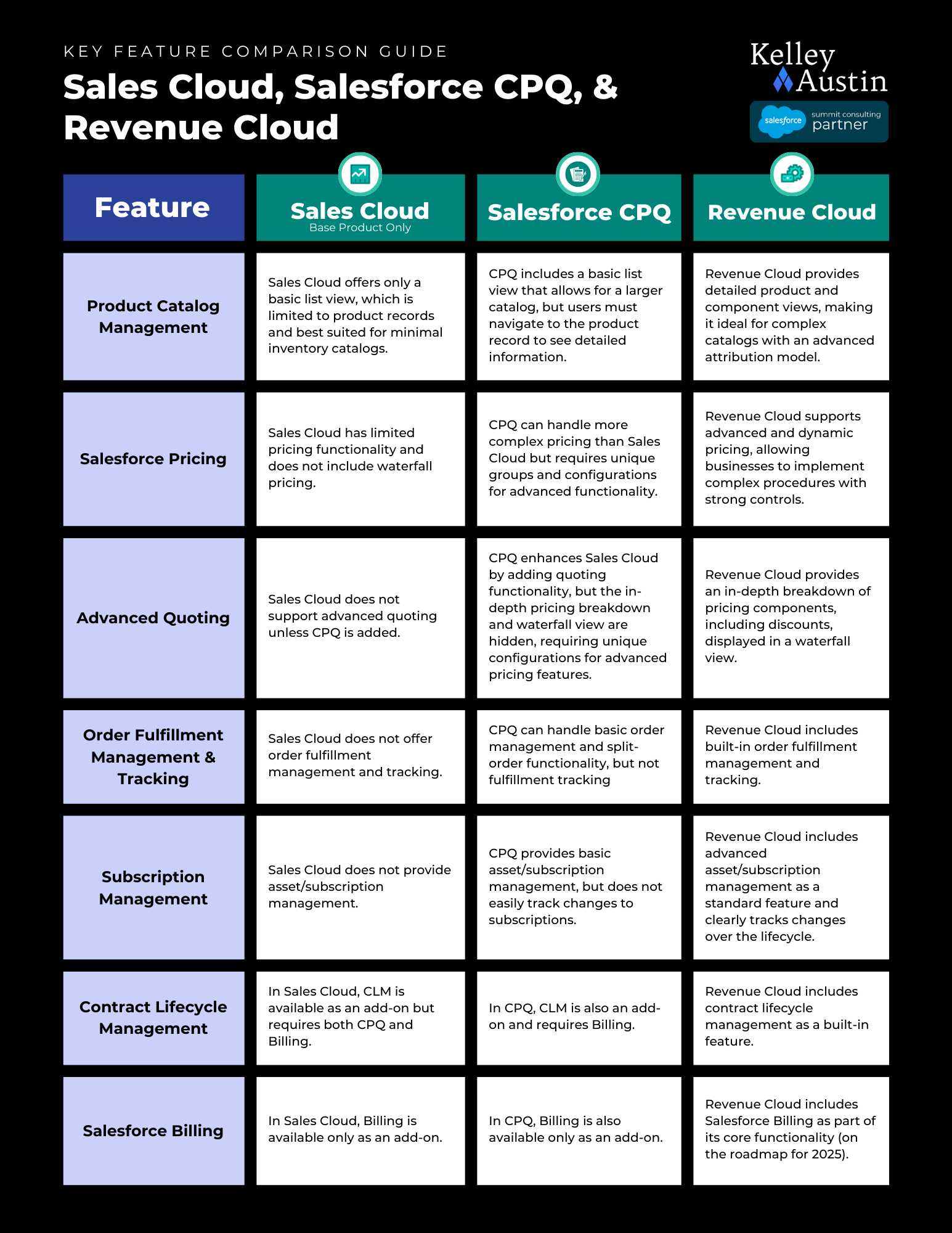


Salesforce CPQ is officially entering its end-of-sale phase — and for businesses still relying on it to manage quoting, pricing, and product configuration, this is a pivotal moment. As Salesforce shifts its investment toward Revenue Cloud (RCA) as its modern quoting engine, CPQ users are facing a critical decision: migrate to Revenue Cloud or risk falling behind.
Current customers will still be able to use Salesforce CPQ, renew their subscription, and receive product support from Salesforce, but it can be expected that Salesforce will invest heavily in Revenue Cloud as the future of Quote-to-Cash.
Revenue Cloud is a major leap forward for businesses. It's designed for businesses aiming to scale faster and operate more efficiently. Revenue Cloud offers deeper Sales Cloud integration, enhanced data, automation, and AI capabilities, along with greater flexibility to support complex pricing models and drive more value from the sales process.
Read More: The End of Salesforce CPQ: What It Means for Your Business →
But before jumping into implementation, the question remains: is your business ready?
We created a Revenue Cloud Readiness Assessment to help organizations evaluate how prepared they are to implement RCA effectively — whether they’re transitioning from CPQ or adopting RCA for the first time.
This assessment looks at five critical areas to ensure a smooth rollout:
Do you have a structured product catalog and scalable pricing models? Have you aligned internal processes with Revenue Cloud’s capabilities? Before implementation, it’s essential to assess your product structure, pricing strategy, and operational readiness.
Data is the foundation of Revenue Cloud. The assessment ensures your organization has identified and cleaned data across pipeline, pricing, contracts, and finance systems. It also helps define your data migration strategy — clean before or after implementation.
Revenue Cloud touches every part of your revenue process — sales, finance, operations, IT. Our assessment evaluates whether the right stakeholders are engaged, from RevOps leaders to end-user champions, and whether they’re prepared to support the project through testing and validation.
From managing open opportunities to sunsetting legacy SKUs, successful Revenue Cloud projects require detailed transition plans. The assessment helps your team plan for legacy data, product mapping, and Day One readiness.
Revenue Cloud unlocks powerful reporting, but only if your KPIs and data structures are clearly defined. The assessment ensures your team has aligned on the metrics that matter — from ARR and ACV to quote velocity and forecast accuracy — and has a plan to track them from the get-go.
After completing the assessment, your organization will receive a score between 0–23, placing you in one of four categories:
No matter where you land, the assessment provides clear guidance on next steps to strengthen your position before implementation.

Kelley Austin is excited to help companies across industries implement Revenue Cloud solutions. We recently partnered with a global SaaS provider in the R&D and compliance space to help the company modernize its complex pricing and quoting operations following a series of acquisitions.
The company faced significant challenges, including fragmented product catalogs, region-specific pricing models, and strict governance requirements across a global footprint.
We implemented Revenue Cloud to unify these operations — consolidating SKUs into a streamlined, attribute-based catalog, enabling sophisticated pricing logic by customer type and region, and supporting multi-currency, multi-language quoting.
We also built custom workflows for approvals, renewals, and contract amendments, and used Salesforce Omnistudio to create dynamic, multi-language proposal templates.
Our team brought key accelerators and best practices to the project to ensure a smooth deployment for our client.
We leveraged a reusable, template-based data migration tool (Starfish) to efficiently move complex quoting, pricing, and account data into Salesforce. This solution not only delivered immediate operational efficiencies and compliance alignment but also laid a scalable foundation for future growth.
Today, the company operates from a single source of truth for quoting and pricing — empowering global teams to respond faster, ensure accuracy, and confidently support expansion into new markets.
Salesforce is redefining the future of Quote-to-Cash, and Revenue Cloud is at the center of this transformation. If you’re still using Salesforce CPQ, now is the time to consider making the move.
Here are five compelling reasons why migrating to Revenue Cloud is not only a smart decision but necessary for long-term business success.
Salesforce CPQ has officially entered its “End of Sale” (EOS) phase and is no longer available to new customers. While existing CPQ customers will still receive support, the product is no longer being enhanced.
In contrast, Revenue Cloud is receiving Salesforce’s full attention — with innovations being released in every product cycle, including deep integrations with AI, automation, and analytics tools. Migrating now ensures you're aligned with Salesforce’s long-term roadmap.
Revenue Cloud is natively built on Salesforce Core, enabling seamless integration with AI tools such as Agentforce and Einstein. These tools bring real-time intelligence to your quoting process — from predictive pricing and guided selling to automated approvals.
CPQ, as a managed package, lacks this level of native AI integration and requires significant customization to support similar capabilities.
While CPQ primarily focuses on configuration and quoting, Revenue Cloud handles the entire revenue lifecycle. This includes quoting, contracting, billing, renewals, amendments, and even automated revenue recognition — all within a single, unified platform.
This eliminates the need for multiple systems or add-ons, reducing integration complexity and ensuring consistent data across the entire process.
Revenue Cloud supports complex catalogs using attribute-based configuration, making it easier to manage variations across products, regions, and customer segments. It also scales better for global operations with built-in support for multi-language and multi-currency quoting.
CPQ’s rigid catalog structure and rule logic often require technical expertise to maintain and can struggle under enterprise-scale complexity.

CPQ is often seen as a “black box” with limited flexibility when it comes to customizing pricing logic, approval workflows, or renewal processes. Revenue Cloud changes that. Built on standard Salesforce objects and flows, it empowers Admins and RevOps teams to configure automation and business logic using Flow and Apex — without heavy reliance on developers.
Plus, it integrates more easily with B2B Commerce and other Salesforce Clouds, making it ideal for businesses looking to scale.
Bottom line: Revenue Cloud offers a smarter, more scalable, and future-proof platform. The sooner you transition, the sooner you can take advantage of Salesforce’s next-gen innovations.
Whether you're planning your first Revenue Cloud implementation or migrating from legacy CPQ, Kelley Austin can help. As a Salesforce Summit Partner, we bring deep expertise in Revenue Cloud, CPQ transitions, and cross-cloud solutions like Sales Cloud, Data Cloud, and Service Cloud.
We’ve helped businesses across industries streamline their revenue operations — from quote creation and pricing strategy to contract management and forecasting. Our team will meet you where you are, help you close readiness gaps, and guide you through a successful implementation with minimal disruption.
Ready to take the next step? Contact us today to start your Revenue Cloud journey.
At Kelley Austin we're proud to provide tailored Salesforce solutions across a variety of industries. Our expert knowledge and many years of experience in all aspects of the Salesforce ecosystem have earned us high levels of satisfaction from our clients.
We're ready to find the right solutions for your industry today.